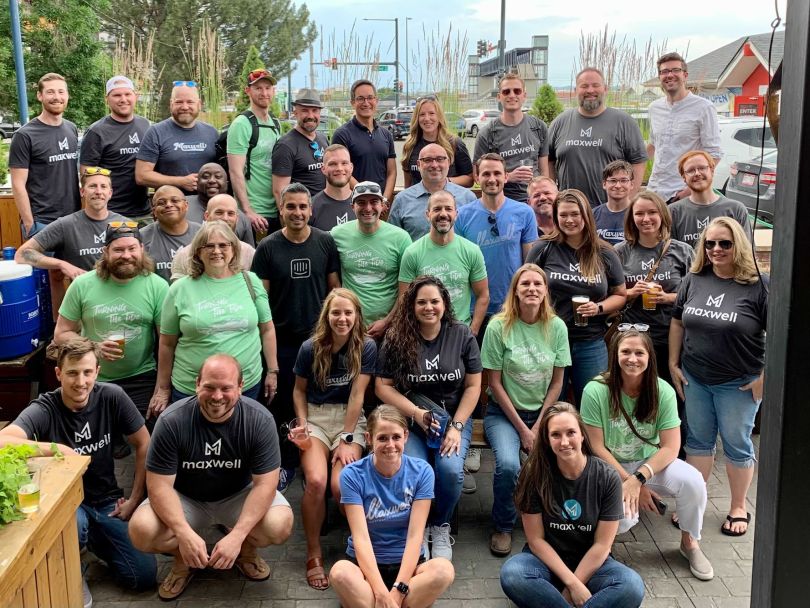Career success is often presented as a linear path established in the formative days of youth. Get good grades, go to a respectable college, embark on your profession from the entry level and climb the ladder of success.
What’s missing from that equation? Factoring in that not everyone wants the same end goal.
Suggesting that not every employee dreams of overseeing teams from the big desk of manager or CEO might sound shocking to ambitious career streamliners, but ignoring the idea can create a major hindrance in the career development of individual contributors (ICs). That’s because showcasing strong skill development and technical expertise is commonly misread as the ability to lead a team to achieve the same results, especially in a field like engineering.
So how do ICs who would rather chase passion than the accolades of a leadership title carve out space to build their own path?
“Thankfully, more companies are recognizing the importance of supporting an IC-based career ladder, including clearly defined responsibilities and the criteria for advancing,” said Larry Ogrodnek, distinguished software engineer at Homebound. “What’s worked for me has really been open and honest communication with my manager.”
Ogrodnek is not alone in his journey — many other engineers are realizing that being a major asset to a company as an individual contributor is possible while still forging an upward path of career development. That’s why Built In caught up with him and Maxwell’s Senior Data Engineer Brian Nyx to discuss their expansive career journeys as software engineers and how they’ve managed to achieve success on their own terms.
Tell us a bit about your career journey thus far. How long have you been working as a software engineer, and what types of roles have you held?
I’ve been working in software for over 20 years. During that time I’ve held many different roles, including an IC, manager, director and even a few years as an independent consultant. I’ve worked at small startups and large companies across many different industries.
One of the things that has kept me interested in software engineering is that there are interesting problems to solve across so many domains. My career progression definitely has not been linear, and I wouldn’t be surprised if it takes a few more twists and turns. I’ve prioritized working with great teams, working on interesting projects and learning.
Identify what you want your career to look like, share it with your manager and develop a shared game plan on moving to the next step.”
Management isn’t for everyone, but many engineers feel it can be difficult to progress in their career without making the jump. How have you navigated conversations about career growth with your managers?
Historically, I think it has been difficult at many companies not only to progress in your career, but also to continue to have a voice in team and technical direction without moving to a management role. As you move up the IC ladder, you really do have to become a strong technical leader. There’s overlap between the skills required for different leadership paths, and it can be confusing for both you and your manager.
Thankfully, more companies are recognizing the importance of supporting an IC-based career ladder, including clearly defined responsibilities and the criteria for advancing. What’s worked for me has really been open and honest communication with my manager. I’ve tried to be clear about what I wanted to do, what I don’t want to do, and what I’m unsure about but would like to try or learn more. The best managers want to see you succeed and grow, even if it means you won’t be on the same team or even the same company as you progress.
Make sure you understand the expectations for your current role and ask for feedback regularly. Identify what you want your career to look like, share it with your manager and develop a shared game plan on moving to the next step.
What types of growth opportunities exist at your company for software developers who want to remain in an individual contributor role? And how have you grown in your time with the company?
At Homebound we have an extensive career ladder for ICs spanning seven levels, from associate software engineer to distinguished engineer. We also have a comprehensive and evolving set of role success definition (RSD) documents clearly listing the key responsibilities for each level. Having documentation like this is critical to setting people up for success and developing individual plans for career growth.
Additionally, a major focus of your manager’s RSD at Homebound is supporting your success and helping your plan for growth. We also have a really amazing supportive tech team, with a great culture and focus on humility, respect and trust.
Construction is a new industry for me. I’m still early on my journey, but I’m learning a ton from our very patient construction, architecture and design teams. Even after being in the software industry for over 20 years, I’m still learning what great technical leadership looks like. I’m learning about great product design from our amazing product and design teams. I’ve really been fortunate at Homebound to work with and learn from such amazing and collaborative teammates across the entire company.

Tell us a bit about your career journey thus far. How long have you been working as a software engineer, and what types of roles have you held?
I first got my start at a digital agency where I worked on projects using varied technologies for big name clients. Soon after, I realized I wanted to instead focus on building a single product for a tech-first company — and what better way to do that than join a startup?
I’ve now worked as a software engineer for about 10 years, still preferring to work at smaller companies and picking new roles based on what I think I should gain competency in next. I’ve been able to move from software engineer to technical team lead, and most recently, moved into data engineer at Maxwell.
Anyone looking to grow as an IC should consider lunch-and-learn meetings as an audition for receiving more growth opportunities.”
Management isn’t for everyone, but many engineers feel it can be difficult to progress in their career without making the jump. How have you navigated conversations about career growth with your managers?
Software engineers are knowledge workers, so the occupation inherently requires continuous learning to progress. Being able to show continued learning and applying new ideas back to your current work in a conversation about career growth helps prove you’re capable of technical leadership for the next big project.
The most success I’ve had in convincing a manager or peer group to try something new is when I demonstrated working prototypes in lunch-and-learn meetings. Anyone looking to grow as an IC should consider these types of meetings as an audition for receiving more growth opportunities from management.
What types of growth opportunities exist at your company for software developers who want to remain in an individual contributor role? And how have you grown in your time with the company?
Maxwell’s expansion across multiple business units gives developers the potential to champion their technical growth by architecting new solutions, making open source contributions, or trying new roles across the engineering department. Thankfully, due to Maxwell’s growth and the fact that the engineering function is focused on continued learning, we’re always looking for creative solutions which oftentimes leads to growth opportunities internally.
My desire was to switch away from application development, and Maxwell gave me the space to focus full time on data engineering and cloud infrastructure.







